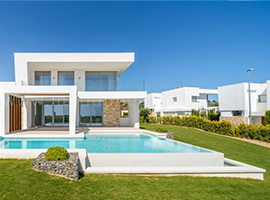House for rent in Dubai
Renting a house in Dubai can be an exciting but also complex process, especially if you are new to the city.
Short-Term vs. Long-Term Rentals: Short-term rentals (less than six months) are typically more expensive per month than long-term rentals (12 months or more). Long-term rentals usually require payment in post-dated cheques, which can be for 3, 6, or 12 months.
Factor in additional costs like security deposit (usually 5% for unfurnished and 10% for furnished properties), agent fees (typically 5% of the annual rent), utility connection fees (DEWA deposit and activation charges), and the annual Dubai Municipality housing fee (5% of annual rent, added to your monthly DEWA bill).
You can use the RERA Rent Calculator (https://www.dubailand.gov.ae/en/eservices/rental-index/rental-index/) as a guide to determine the appropriate rental rates.
Register your Ejari:
Register your tenancy contract with Ejari (Real Estate Regulatory Agency). This is a legal requirement in Dubai.
You can register online through the Dubai Land Department website or app, or visit an Ejari center.
Required documents typically include the tenancy contract, your Emirates ID, and the landlord's passport copy and title deed.
Important Considerations:
Tenancy Laws: Familiarize yourself with Dubai's tenancy laws, which outline the rights and responsibilities of both tenants and landlords.
Rent Increases: Landlords can only increase the rent within the limits set by the RERA Rent Calculator and must provide a 90-day notice for any rent increase.
Early Termination: Understand the implications of terminating your lease early, as it may involve penalties.
Security Deposit Refund: Ensure you have documented the property's condition at the start of your tenancy to facilitate a full refund of your security deposit upon moving out, provided there is no damage beyond normal wear and tear and all bills are paid.





